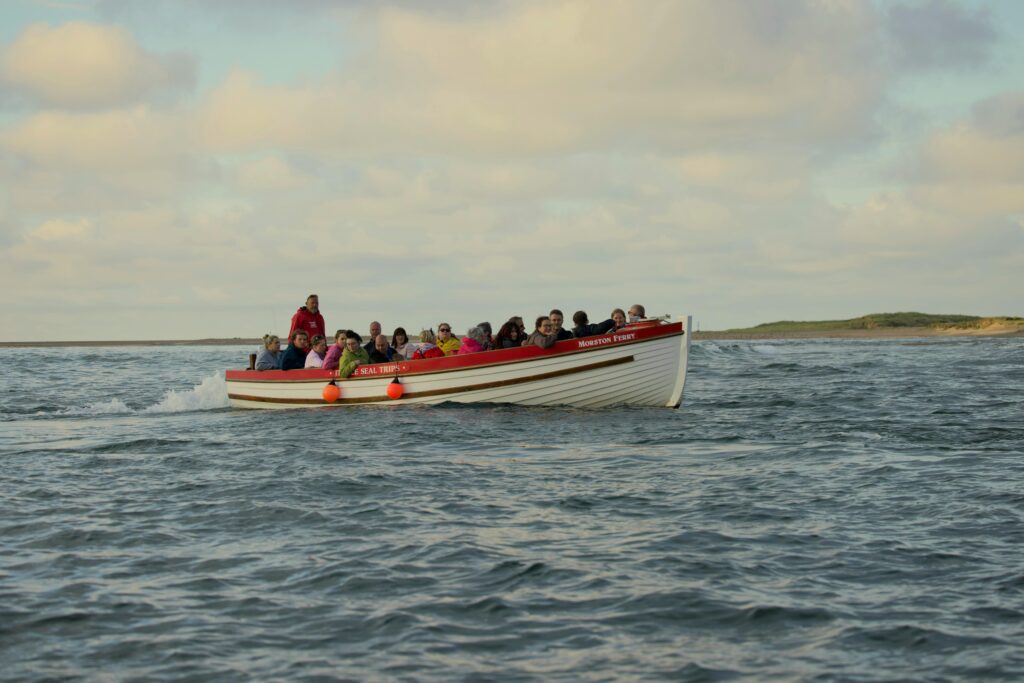Introduction: Travel trends are constantly evolving, influenced by a variety of factors such as technological advancements, economic shifts, and changing consumer preferences. Understanding these trends is crucial for travelers and businesses alike, as they can help anticipate changes in the industry and adapt accordingly. In this article, we’ll explore the current and future trends in travel and their impact on the industry.
Overview of Travel Trends
The travel industry is experiencing significant changes, driven by shifting consumer behaviors and technological innovations. From the rise of sustainable travel practices to the increasing popularity of remote work and travel, there are several key trends shaping the future of travel.
Importance of Understanding Travel Trends
For travelers, keeping up with these trends can help them make informed decisions about their trips, such as choosing destinations that align with their values or taking advantage of new travel experiences. For businesses, understanding these trends is essential for developing marketing strategies, creating new products and services, and staying competitive in the market.
Impact of Travel Trends on the Industry
Travel trends can have a profound impact on the travel industry, influencing everything from customer preferences to business operations. Companies that fail to adapt to these trends risk losing customers and falling behind their competitors.
Current Trends
Technological Advancements in Travel
Technology has revolutionized the way people travel, making it easier and more convenient than ever before. From mobile apps that allow travelers to book flights and accommodations to virtual reality experiences that offer a glimpse into potential destinations, technology is reshaping the travel experience.
Sustainable Travel Practices
With increasing awareness of environmental issues, travelers are becoming more conscious of their carbon footprint. This has led to a rise in sustainable travel practices, such as eco-friendly accommodations, carbon offset programs, and responsible tourism initiatives.
Rise of Remote Work and Travel
The COVID-19 pandemic has accelerated the trend of remote work, allowing people to work from anywhere in the world. As a result, many are opting for extended trips or even relocating to new destinations, leading to a rise in “workcations” and digital nomadism.
Future Predictions
Post-Pandemic Travel Expectations
As the world recovers from the pandemic, travel is expected to rebound, with travelers eager to explore new destinations and experiences. However, health and safety concerns are likely to remain a top priority, leading to changes in travel behavior and preferences.
Well, when it comes to the safety of traveling, it also depends on the tools and equipments you are on the trip. For instance, if you are considering a boat trip, electric trim tabs can help you maintain your boat controls.
Emerging Destinations
While popular tourist destinations are expected to remain popular, emerging destinations are also gaining traction among travelers seeking unique experiences. These destinations offer a blend of cultural authenticity, natural beauty, and immersive experiences that appeal to adventurous travelers.
Traveler Preferences in the Next Decade
Looking ahead, travelers are expected to prioritize experiences that offer personalization, authenticity, and sustainability. This shift in preferences is driving changes in the types of experiences and accommodations that travelers seek.
Industry Response
Adaptation of Travel Companies
In response to changing consumer preferences, travel companies are adapting their offerings to cater to the needs of modern travelers. This includes offering more sustainable options, enhancing digital experiences, and providing flexible booking policies.
Marketing Strategies in Response to Trends
Travel companies are also adjusting their marketing strategies to align with current trends. This includes highlighting sustainable practices, promoting remote work and travel opportunities, and leveraging technology to enhance the customer experience.
Collaboration and Partnerships in the Industry
To stay competitive, travel companies are forming strategic partnerships and collaborations. This allows them to offer unique experiences, access new markets, and differentiate themselves from competitors.
Challenges
Environmental Impact of Travel
Despite efforts to promote sustainability, travel still has a significant environmental impact. This includes carbon emissions from transportation, waste generation, and habitat destruction. Addressing these challenges will require collective action from travelers, businesses, and governments.
Over-tourism Concerns
Popular tourist destinations are facing challenges related to over-tourism, including overcrowding, environmental degradation, and cultural erosion. Sustainable tourism practices, such as visitor caps and destination diversification, are being implemented to address these issues.
Economic Challenges in the Travel Industry
The travel industry has been significantly impacted by the COVID-19 pandemic, leading to financial losses and job cuts. While recovery is underway, challenges such as changing travel restrictions and consumer confidence remain.
Conclusion
In conclusion, travel trends play a crucial role in shaping the future of travel. By staying informed about these trends, travelers can make more informed decisions, while businesses can adapt their strategies to meet the evolving needs of their customers. By embracing sustainability, technology, and collaboration, the travel industry can navigate these challenges and thrive in the years to come.
FAQs
What are some emerging travel trends post-pandemic?
How can travelers contribute to sustainable tourism?
What role does technology play in shaping the future of travel?
How are travel companies adapting to changing consumer preferences?
What are some challenges faced by the travel industry?
How can travelers stay informed about current travel trends?



